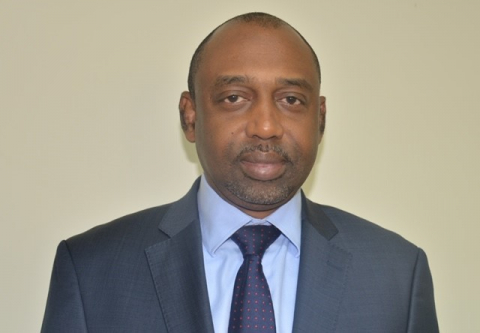Twenty-four countries around the world have eliminated malaria since 2000, and more countries than ever before are within reach of zero malaria in the coming years. However, leaders must step up investments to end malaria as the COVID-19 pandemic continues to threaten historic gains against one of the oldest and deadliest diseases, participants heard at a Virtual Forum on Malaria Elimination, co-hosted by the RBM Partnership to End Malaria and the World Health Organisation (WHO) on Wednesday, April 21, 2021.

Held in the lead-up to this year’s World Malaria Day on April 25, the event highlighted recent progress towards malaria elimination, with Algeria, Paraguay and Uzbekistan, as well as El Salvador, the first Central American country, all being certified malaria-free since 2015.
Over the past two decades, the number of countries that have reduced the burden of malaria to under 1,000 annual cases has more than doubled from 14 to 34, putting the world on track to end malaria within a generation.
Dr Abdourahmane Diallo, CEO of the RBM Partnership to End Malaria, says: “Since the turn of the century, countries around the world have proven again and again that malaria elimination is a viable and worthwhile goal. Ending malaria leads to healthier, more resilient communities, economies and health systems that are critical for confronting new health challenges. This World Malaria Day, I call on countries worldwide to reaffirm their commitment to achieving zero malaria.”
During Wednesday’s forum, WHO also announced its new E-2025 initiative focusing on 25 countries within reach of achieving zero malaria cases by 2025, including Botswana, Cabo Verde, the Dominican Republic, South Africa and Thailand.
Eradicating malaria worldwide could save millions more lives and unlock trillions of dollars in economic potential, while strengthening countries’ health systems and capacity to respond to both existing and emerging diseases. In Asia-Pacific alone, malaria elimination is projected to save over 400,000 lives and prevent 120 million malaria cases, unlocking $90 billion in economic benefits.
Malaria investments are also playing a crucial role in countries’ response to the ongoing pandemic, protecting fragile health systems in malaria-affected countries, leveraging disease surveillance systems and mobilising frontline health workers in the dual fight against malaria and COVID-19.
High burden countries – the challenge ahead
Despite remarkable progress in recent decades, with 7.6 million lives saved and 1.5 billion new infections prevented, over 225 million cases and 409,000 deaths due to malaria were reported in 2019 – more than 90% of which were concentrated in sub-Saharan Africa.
Whilst the global malaria community averted the worst-case scenario of doubling malaria deaths on the continent last year due to COVID-19 disruptions, the WHO’s World Malaria Report 2020 projected that malaria deaths and cases are likely to rise as a result of the pandemic.
The ongoing spread of COVID-19 continues to threaten the malaria response, particularly in the highest malaria burden countries where the rate of progress has slowed in recent years. For instance, a recent report from the Global Fund uncovered significant disruptions to health systems across Africa and Asia in 2020 due to COVID-19, with malaria diagnoses falling by 31%.
Dr Diallo comments: “Despite historic progress made against malaria, we must also acknowledge what more must be done to end suffering from this dreadful disease. Malaria still takes a child’s life every two minutes, and so we must all work together to fulfil our commitments, drive innovation and close the $2.6 billion annual funding gap that holds us back from achieving our vision of a malaria-free world.”
Accelerating towards zero malaria this World Malaria Day
The theme of this year’s World Malaria Day, “Zero Malaria – Draw the Line Against Malaria” celebrates the progress achieved by a diverse set of countries who have achieved zero malaria since 2000. The global awareness day, to be held on April 25, will encourage a growing number of nations on the cusp of elimination and accelerate the movement to end malaria in countries still impacted by the disease.
To mark World Malaria Day, several countries that have eliminated malaria this century, including China, Sri Lanka and UAE, will illuminate landmarks at 21:00 local time on April 25 in a global relay to celebrate progress towards zero malaria around the world and highlight the urgency of ending this disease everywhere.
Furthermore, countries including Burkina Faso, Cameroon, the Democratic Republic of Congo and Zimbabwe are organizing activities in support of the pan-African “Zero Malaria Starts with Me” movement, which mobilizes and empowers communities to take ownership over the fight to end malaria.
To accelerate action on the continent and harness the energy of Africa’s youth, in February the RBM Partnership launched “Draw the Line Against Malaria” – a youth-focused, Africa-first global campaign. In partnership with Gallup International, the RBM Partnership’s research found that 9 in 10 African youth want to take personal action in the fight against malaria, with almost two-thirds (61%) believing the disease can be eliminated in their lifetimes.
Whitney Mwangi, Member of the African Leaders Malaria Alliance Youth Advisory Council, said: “Three quarters of the African population are under the age of 35 and are powerful agents of change. We are ready to act against malaria, and it’s time to draw the line against this disease once and for all. Whether by choosing a medical career, adopting preventative and protective interventions, or holding leaders accountable, Africa’s youth must be empowered to drive action against malaria and take back their futures.”
This World Malaria Day, the RBM Partnership to End Malaria urges people in Africa and worldwide to Draw the Line Against Malaria at ZeroMalaria.org and join the conversation on social media by using #DrawTheLine, #ZeroMalaria and #WorldMalariaDay.
